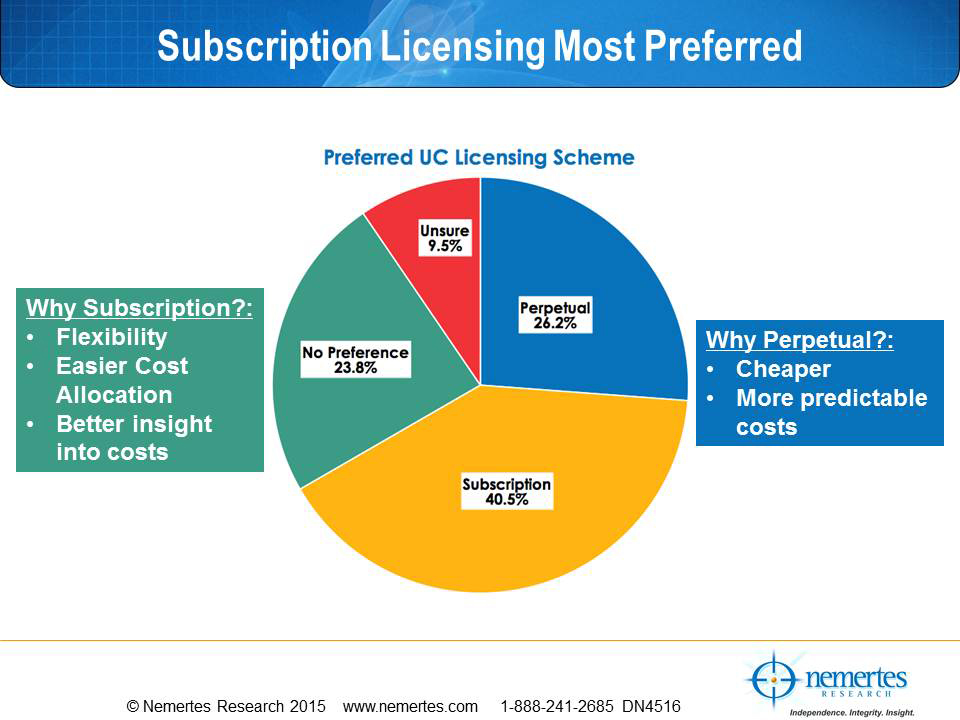Cloud-reliant software and services have enabled a paradigm shift for developers and service providers alike. Once based on the buy-once-use-forever concept, the acquisition of software and services has gravitated towards a licensing business model that has proved to be far more lucrative for every party involved, from the people who code the solution to the end users.
A recent report by Nemertes Research indicates that Unified Communications (UC) solutions, or Unified Communications as a Service (UCaaS), are selling much better as subscription bundles, as opposed to perpetual licensing which involves a large upfront investment. And it’s hardly a surprise.
Spending habits have changed
Over half of the organizations polled by the women-owned research firm reported swapping their perpetual licenses with a subscription-based business model. 40.5% of the surveyed companies said subscriptions are synonymous with flexibility and insight into costs.
In fact, selling UCaaS differently would otherwise make no sense. A perpetual license allows the buyer to use the licensed software indefinitely, but this doesn’t cover unforeseen scenarios – such as the need to scale up the service, or get new features / versions. It also involves paying a briefcase-full of cash before even fully experiencing the solution you’re buying.
Subscriptions, on the other hand, enable everyone from the developer to the service provider (essentially the reseller of the UC app) to the end-user to invest in new features and new usage scenarios as they go. When a function is no longer relevant, the UCaaS provider will know not to pay for it, resulting in a much more feasible investment.
The full Unified Communications and Collaboration benchmark can be found over at Nemertes‘ web site. It offers a bird’s eye view of today’s trends regarding enterprise adoption of emerging technologies, including telephony, collaboration software (video, team chat, conferencing, social), WebRTC, SIP trunking, and insight into cloud matters in general.

Post A Reply